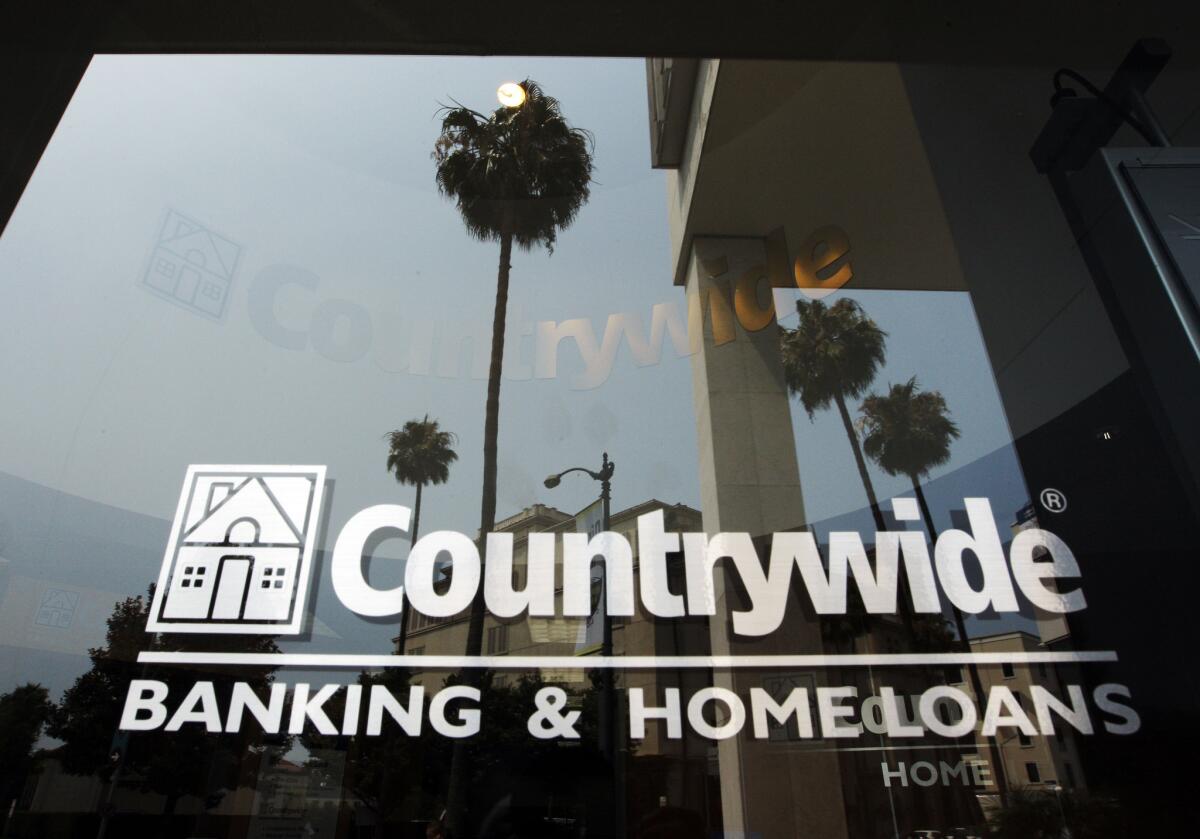Bank of America not liable for fraud in Countrywide case, appeals court finds

Bank of America Corp. was not liable for fraud nor subject to a penalty of more than $1.2 billion for its actions before the economy collapsed in 2008 despite a jury’s finding to the contrary, a federal appeals court ruled Monday.
The U.S. 2nd Circuit Court of Appeals in Manhattan said there was insufficient evidence for a jury to conclude at a 2013 trial that mail and wire fraud was committed by the bank’s Countrywide Financial unit in late 2007 and 2008 when it passed along mortgages to government housing agencies Fannie Mae and Freddie Mac.
Prosecutors had alleged that the bank sold mortgages at breakneck speed without regard to quality as the economy hurtled toward one of the nation’s worst financial downturns.
In July 2014, U.S. Atty. Preet Bharara touted the jury verdict and subsequent civil penalty as the first time a bank or its executives had been found liable under federal law for mortgage fraud leading up to the financial crisis. His office had no immediate comment Monday.
Lawrence Grayson, a spokesman for the Charlotte, N.C.-based bank, said the bank was pleased with the 2nd Circuit’s ruling.
The three-judge panel, in a ruling written by Circuit Judge Richard C. Wesley, said trial evidence came up short.
The appeals court said the claims arose in 2012 after a former employee of Countrywide sued the company, alleging that a division of Countrywide Home Loans that had specialized in subprime loans acted fraudulently after it transformed itself into a prime origination division after the subprime market collapsed in 2007. The United States later joined the lawsuit.
After a jury found the bank and an employee liable, the trial judge imposed a $1.27-billion penalty against the bank and a $1-million penalty against an executive who oversaw the creation of a loan origination process called the “High Speed Swim Lane” beginning in August 2007. The program nicknamed the “Hustle” lasted until May 2008.
The jury found that Countrywide executives deliberately misrepresented the quality of the mortgages that were sold as safe investments. The 2nd Circuit, however, found a “basic deficiency” in proof.
“We conclude the evidence is insufficient to sustain the jury’s verdict,” it said.
See the most-read stories this hour >>
The 2nd Circuit said the government had to prove there was fraudulent intent when the bank set up contracts.
“The government did not prove — in fact, did not attempt to prove — that at the time the contracts were executed Countrywide never intended to perform its promise of investment quality. Nor did it prove that Countrywide made any later misrepresentations as to which fraudulent intent could be found,” it said.
Before the housing collapse, Countrywide was one of many mortgage companies selling risky mortgages to Fannie Mae and Freddie Mac.
Bank of America, JPMorgan Chase and other big Wall Street banks paid out billions of dollars in legal settlements for their roles in the financial crisis.
MORE BUSINESS NEWS
Memorial Day travel expected to be busiest since 2005
Viacom’s Philippe Dauman sues to get back on Sumner Redstone trust
L.A. billionaire becomes the 2nd-largest shareholder of L.A. Times’ parent company
UPDATES:
11:12 a.m.: This article was updated with additional details and background information.
This article was originally published at 9:28 a.m.
More to Read
Inside the business of entertainment
The Wide Shot brings you news, analysis and insights on everything from streaming wars to production — and what it all means for the future.
You may occasionally receive promotional content from the Los Angeles Times.










